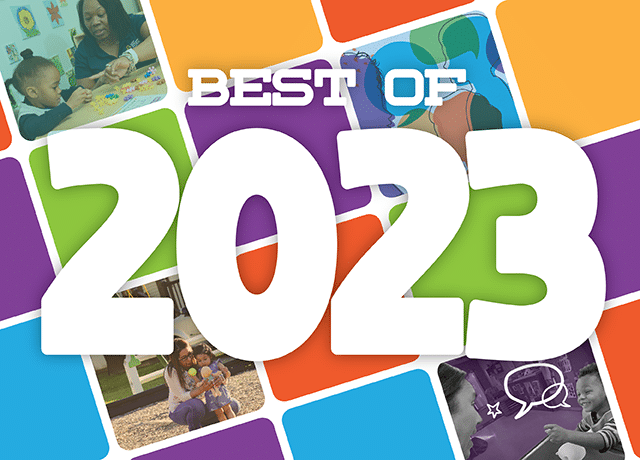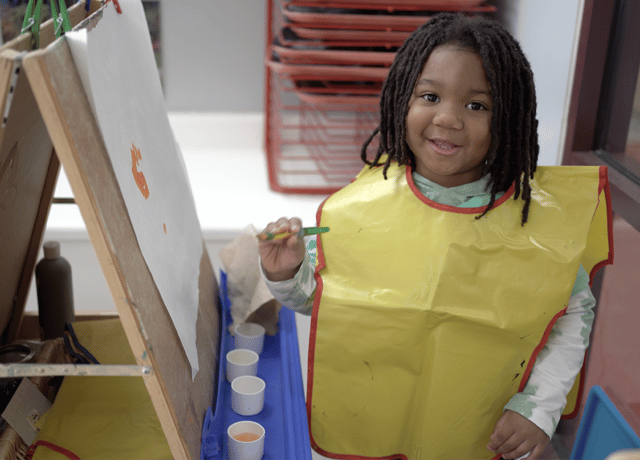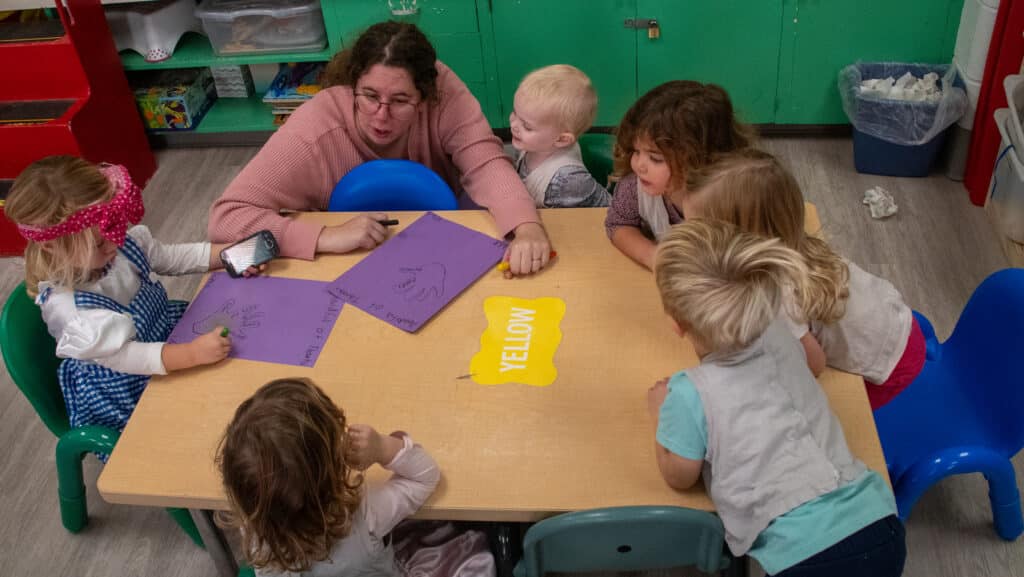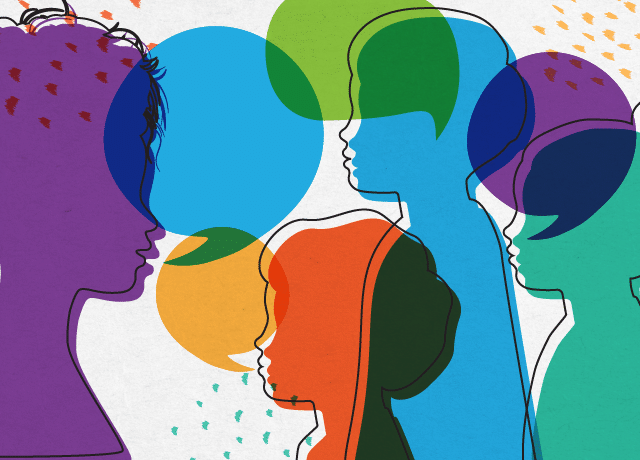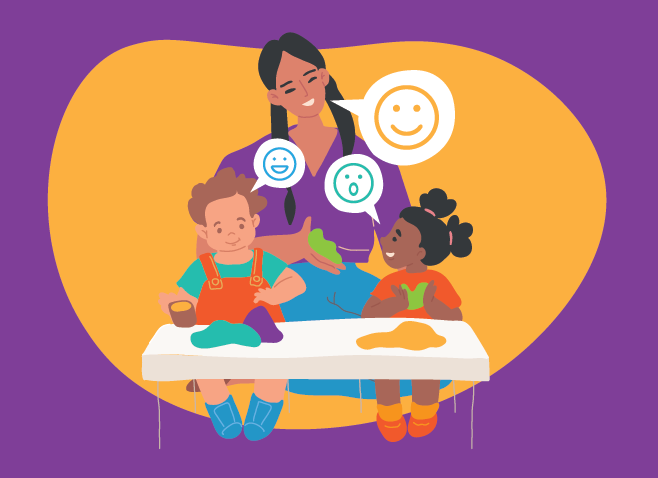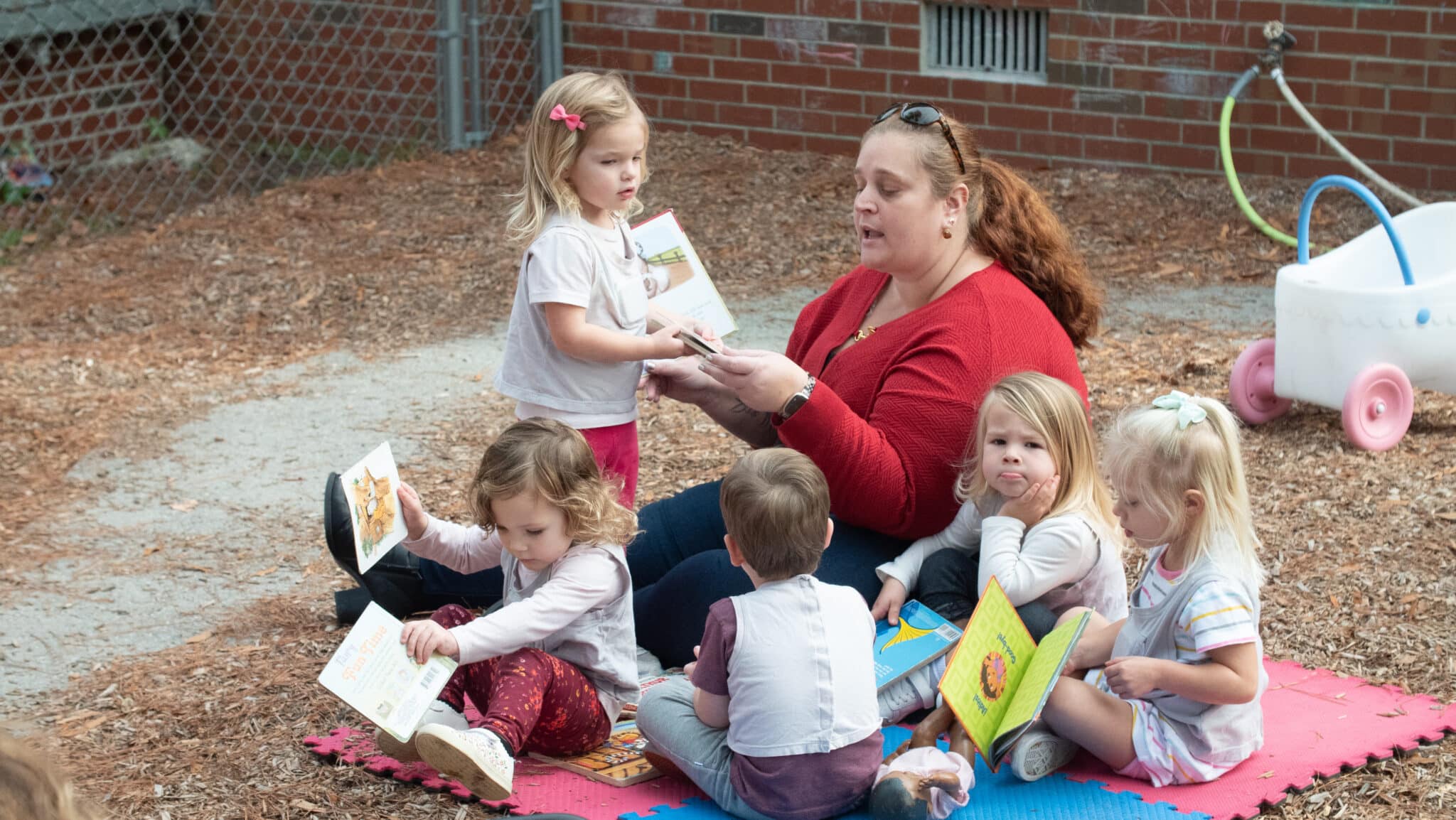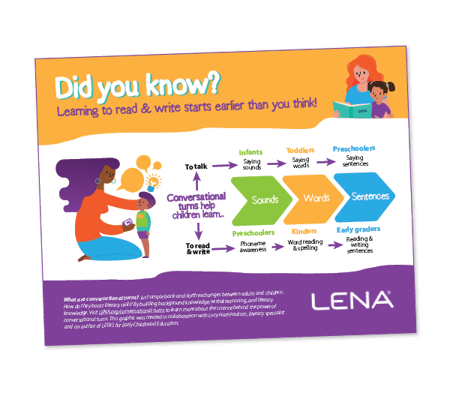LENA’s journey through 2023 has been marked by revealing insights and transformative discussions. From groundbreaking research on preschool vocabulary skills to a compelling webinar addressing the unique needs of dual-language learners, LENA technology continued to reveal more and more about early language development. Our efforts didn’t stop there, as we also explored the realm of early childhood mental health and the continued challenges of the COVID-19 pandemic.
Additionally, we uncovered the instrumental role LENA Grow plays in equipping educators with innovative strategies to navigate language and social-emotional delays among young learners.
Here are some of the blog posts, webinars, and resources that have gained the most attention in 2023:
New Insights: Early Vocabulary Skills Tied to Teacher-Child Interaction
A groundbreaking study led by Dr. Robert Duncan at Purdue University shed new light on the direct correlation between conversational turns in preschool classrooms and their impact on vocabulary skills. In his study, titled “Predictors of preschool language environments and their relations to children’s vocabulary,” Dr. Duncan emphasizes the unique experiences within preschool classrooms. “Even in spite of the noise going on and the chaos when you go into a preschool classroom,” he said, “the LENA technology allows us to get at something that is a child-level experience.”
Read the blog post, stream the webinar, and see the post-webinar highlights.
Using Conversational Turns as a “Training Ground” for Emotional Regulation
There’s a clear and important link between conversational turns and social-emotional learning (SEL) in infants, toddlers, and preschoolers. Conversational turns, just simple verbal interactions between an adult and a child, are so much more than mere “baby talk.” They’re powerful.
In July, LENA brought together a panel of researchers, clinicians, and policy experts to discuss young children’s mental health, specifically in the context of the interactions and relationships with the adults in their lives. “When we move from reactive relationships to responsive relationships, we can see changes in the children,” said Javier Nieves, an infant and early childhood mental health clinician at Montclair State University’s Center for Autism and Early Childhood Mental Health.
Stream the full webinar, read the post-webinar reflection, and learn more about the study that found a causal link between conversational turns and social-emotional development.
Equity in Early Childhood Education: Are We Failing Dual Language Learners?
“It’s fair to say that dual language learners need exactly the same thing that other children need when it comes to early childhood education. They need supportive environments and responsive relationships with teachers. But dual language learners also have very unique needs. The question here is: How do we ensure that we provide them with the support that they need?”
This was how Nathalia Bustamante, Strategic Partnerships Manager at LENA, opened our May webinar about dual language learners in child care.
The discussion concluded with an emphasis on centering linguistic equity, engaging with multilingual families, and viewing multilingualism as the norm and an asset for all children.
Stream the webinar, read the follow-up blog post, and learn more about the data behind the discussion.
Navigating Language and Social-Emotional Delays
In September, LENA’s research team asked: Does participating in LENA Grow have an impact on children experiencing language and social-emotional delays? The answer, a resounding yes, is encouraging, to say the least.
With the first wave of “COVID babies” approaching kindergarten, they are faced with a unique set of challenges. With approximately one in five children experiencing language isolation in child care, early childhood educators are called upon to employ strategies that are practical and easy to maintain.
To learn more about LENA Grow’s efficacy in fostering connections, stream the webinar and read the follow-up blog post. Also, download our free resources for boosting conversational turns.
Connecting Birth-to-Five to the Science of Reading
Rebecca Parlakian, Senior Director of Programs at ZERO TO THREE, made an incisive point as she led the discussion during our November webinar about the science of reading: “It’s been no easy task to nail down what we know the science of reading means. Essentially, the science of reading is not a single curriculum or approach. Instead, the science of reading is the practice of using evidence to inform instruction and interventions.”
“Conversational turns are one of the most important things we can do,” said Dr. Lucy Hart Paulson, co-author of LETRS for Early Childhood Educators. Putting it all together, Dr. Paulson explained how learning to talk and learning to read and write happen “in parallel form.” The important role that conversational turns play as a child begins to talk is mirrored as a child later begins “tuning into the structural aspects of the words that they know.”
Stream the webinar, explore the crash course on how learning to talk and learning to read and write happen in parallel, and download the resource that puts it all together.



